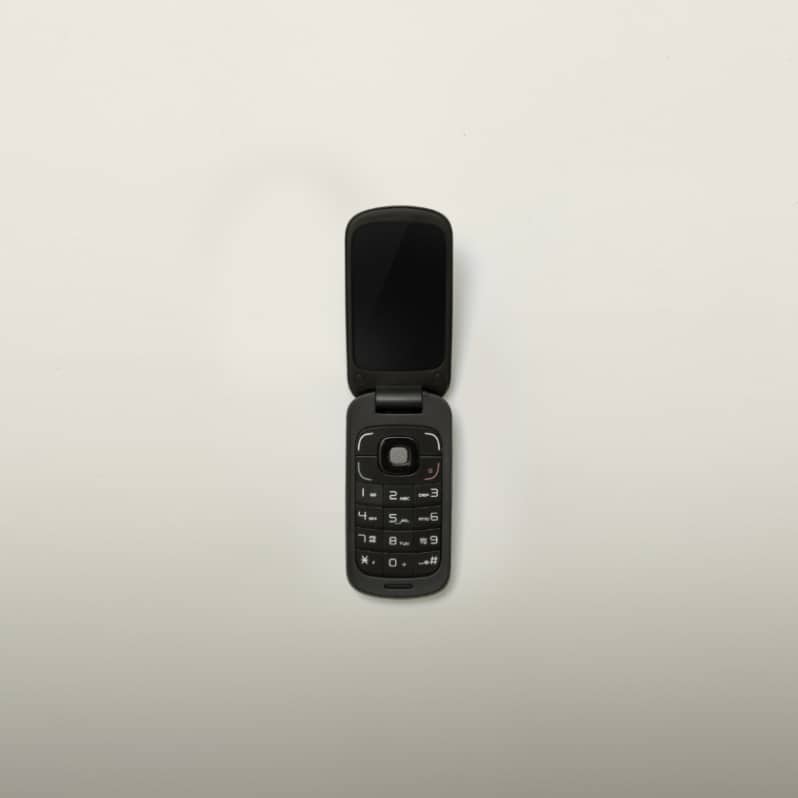
I get a lot of people asking me if they should get rid of their smart phone and buy a flip phone to help with their porn addiction. Instead of giving advice, my policy is to always share from my own experience and what works for me, because I know that what works for me might not always work for someone else. So if you see something in my posts that looks like advice, just know that I’m only relating my own experiences as I go through my own recovery from porn and sex addiction.
With that in mind, there are a few things I can tell you about using a flip phone during recovery from porn addiction.
My Smartphone Addiction
My smart phone was a major part of my addiction prior to entering rehab.
When I entered Desert Solace, I agreed to hand over my smart phone (and all other electronic devices) during my stay there.
During the last two weeks of my residential treatment, my therapist gave me back my smart phone with some suggested boundaries. I don’t remember all of the boundaries, but there were certain activities and times during the day where I wouldn’t be able to use my phone. I agreed to check in with staff every time I sent a text or email and requested permission to make any calls. I also agreed to turn in my phone at night before I went to bed. You probably get the gist of it. I want to say that it was way more “restrictive” than what I had ever experienced before when using my smart phone, but restrictive isn’t the right word because I didn’t see it that way. The word I would use is more “structured.”
It also felt much safer to use my phone that way than I was accustomed to. Before going to porn addiction rehab, I had no boundaries on my phone usage. I would use it whenever and however I wanted. Which is why my porn addiction was able to run rampant in my life. But it wasn’t just my porn addiction that ran rampant, it was a full-blown screen/social media/email/news addiction. It seemed like any time my phone was in my pocket I felt a draw to pull it out and check my notifications or my email or the news or the sports score, and so on and so on. I was never present in the moment because my mind was always somewhere else.
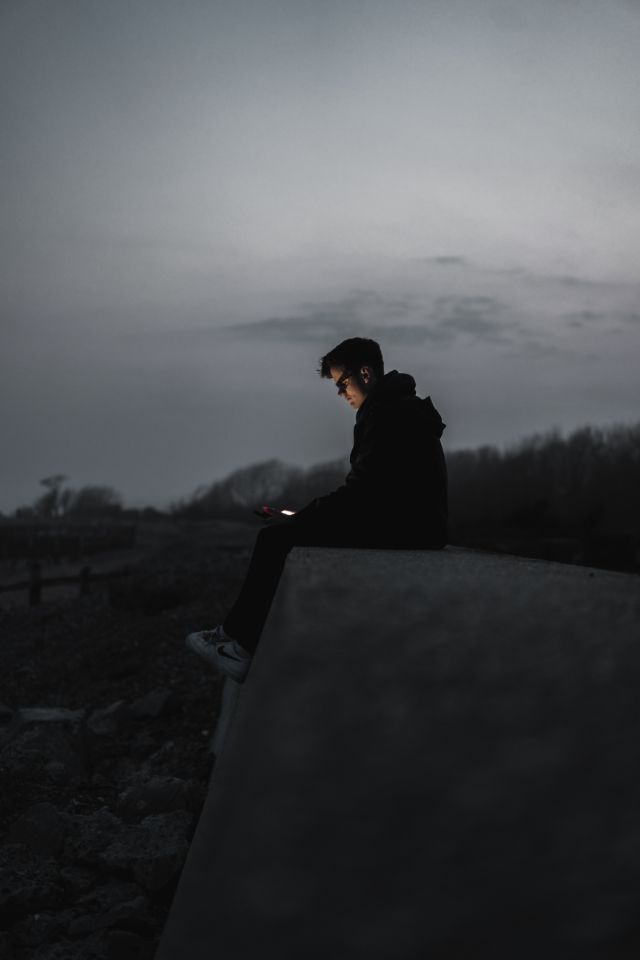
This shouldn’t come as a surprise to anyone out there who has had a smart phone for a significant period of time. Almost every app on a phone is designed to be addictive in nature. That should scare all of us, but for some reason we just take it for granted like it’s no big deal.
What scared me was that I started noticing that times when I should be extremely present, I couldn’t be. Some nights I would be putting my kids to bed and reading books to them, and I would find myself sneaking out my smartphone every time it buzzed, or even sometimes when it wouldn’t. There are so many moments of my past life, so many experiences, so much time that I wish I could get back with my kids or my wife that I lost to my smartphone addiction.
And that’s all of the supposedly “non-harmful” stuff that smartphones are used for. Now I can see that whether it’s porn or social media, if it disconnects me from myself or my loved ones, it’s all harmful.
But back to my experience in rehab, it was honestly a relief when I handed in my phone. I needed a break from it so badly, I just couldn’t bring myself to do it on my own.
Making The Hard, Right Choice to Ditch My Smartphone
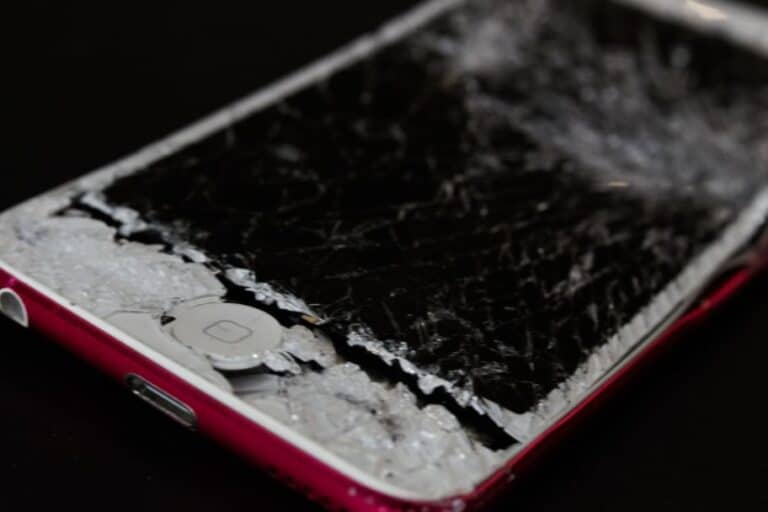
At the end of my stay in rehab, my wife and I had the opportunity to sit down with our therapist and go over our boundaries together. I’ll write another post on boundaries soon, but one of the boundaries that I chose for myself, and that my wife and therapist agreed to, was that I would use a flip phone for a period of time. I didn’t do this begrudgingly and I saw it as my own boundary rather than a restriction that was being placed on me by someone else. It was my choice.
The day I left rehab, we stopped by the Verizon store and bought me an LG brand flip phone that looked like it was straight outta 2003. The screen was probably less than 3 inches, the camera was absolute garbage, and it didn’t have a keyboard, so all texting I did was done by using T9 predictive text (side note: I’m old enough that I used a flip phone in college, so my T9 texting was pretty smooth…). It also had no emojis or gifs, so I had to make up my own by taking pictures of my hand doing a thumbs up and then insert it into the text conversations. I got a lot of laughs from friends when they saw that!
When we got home, I got out my drill and my wife and I took turns drilling holes in my smartphone. It was a powerful symbol of my choice to let go of my addiction and it felt very freeing to know that there was no going back. Writing about it now reminds me of the story about the captain who burned his ships when he and his men came to shore to fight a battle. He was showing his men that there was no going back. Either they won the battle or died, but they knew they didn’t have the ships to go back to. I felt the same way about destroying my smartphone. It showed my inner addict that there was no going back.
My Experience Using a Flip Phone to Help With My Porn Addiction Recovery
It was definitely a transition for me to use a flip phone after using a smartphone for about a decade. Not having quick and easy access to emails, a calendar, sports scores and the news took some getting used to. There were also moments where my ego would step in and try to convince me that I was too good for a flip phone, that flip phones were for tweens, or that I was already strong enough in my recovery to handle using a smartphone without going back to my addiction.
Honestly, the inconveniences ended up being minor and I got used to not always having access to emails, calendars, news apps, sports apps, games, social media, and everything else that comes with constant notifications. It became a normal part of my day to wait until I was at a computer to check my calendar or emails. I realized that emails were never an emergency and if someone needed to get a hold of me they could just call or text. All of that was worth the safety and peace of mind that having a flip phone gave me.
Like I said above, having a flip phone didn’t feel like a restriction to me. It felt like safety.
Five Things I Learned While Using My Flip Phone In Addiction Recovery
I learned a few lessons along the way while using my flip phone. Hopefully some of these things will help you if you are considering using a flip phone yourself to help in your own recovery from sex/pornography addiction:
1. Flip phones are not fool-proof
Something I’ve learned after years of being in my own addiction and now 4 years of helping other men overcome their addiction is this: if an addict wants to find porn, he’s going to find it. It doesn’t matter if he’s got a smartphone or a flip phone or a pager, he will find a way to get to his addiction. That’s why it’s important to work a full recovery (getting professional therapy, going to 12-step meetings, working the steps, finding a sponsor, etc.), because just changing the type of phone you’re using won’t do anything if you’re not working recovery.
So what’s the point of even getting a flip phone? It adds just a bit more friction between the addict and his addiction. In research done into breaking habits, it has been proven that adding more friction between the person and the habit helps with breaking the habit. That’s why I try not to keep soda in my house. If it’s easy to get to, that’s the first thing I’ll drink. But when water is the only option, I’d rather drink that than have to go to the gas station to get a soda.
The same thing applies to using a flip phone. There will always be other ways to access pornography if that’s what a person really wants. But if the inconvenience of finding pornography is greater than the desire to look at it, then having a flip phone instead of a smart phone can be a benefit.
So look at it this way, a flip phone is just one of many possible options available to help in recovery. It won’t keep you from finding porn, but it could tip the balance slightly in your favor.
2. Accept and embrace the inconveniences
Like I wrote about above, having a flip phone comes with some inconveniences. I had to learn to accept and embrace those inconveniences. Not having instant access to news, emails, sports scores, music and social media eventually didn’t matter that much to me. And after time, I came to enjoy the slower pace of life and inner peace that came with not always needing to be attached to my phone to avoid boredom.
The fact is, the feeling of peace and safety that I got from my trusty flip phone actually surpassed whatever enjoyment and entertainment I ever got from my smart phone. Knowing that I was doing well in my recovery and I didn’t need my smartphone anymore gave me a sense of satisfaction I didn’t think was possible.
3. Have pride in owning a flip phone
I was amazed at how many people I ran into who saw my flip phone and told me they wish they had one! They knew that their smartphone wasn’t good for them but they also felt like they were stuck with it. Over time, I started to develop a sense of pride in having a flip phone. Being strong in my recovery became a part of my identity and my flip phone was just an outward reminder of that.
One funny story – I went with my wife and daughter to see a guy who was pretty well known online for being against giving teenagers a smartphone. We were sitting in the first 10 rows or so of the audience. At one point during his speech, he asked if anyone in the audience was using a flip phone. He expected to see a bunch of teenagers holding up their flip phones. I raised mine up and I was the first one he saw. Then when he realized that I was a middle-aged man, he got a good laugh out of it.
I was proud of my flip phone and super grateful for it. I let go of the idea that anyone else would judge me for having one, or that I was somehow “less than” anyone else because of it. The reality was that I met way more people who looked up to me for having it and never heard anyone judge me for it.
4. Be Intentional
This is something that I’ve learned is crucial in everything I do in life. I’ve found that when I don’t have an intention, my addiction creeps up on me. And it starts with the little things. For me, it’s been important to have an intention every time I get on my phone. And that goes whether I am using a flip phone or a smart phone.
What does it mean to be intentional? I will go into it in more detail another day, because it’s a whole article (or book!) worth of stuff to talk about, but the point is that being intentional is maintaining a state of awareness toward whatever it is you want to do in the moment.
Using a phone for example, if I want to pull my phone out of my pocket to check a text message, before I do so, my habit is to state my intention mentally (or sometimes audibly) before opening up my phone. Then, I get on my phone, check my text message and turn it off without doing anything else that wasn’t part of my intention. One other habit that I heard from someone else is to close my eyes and take one deep breath before getting on my phone. It always grounds me to the present moment and makes it easier to be intentional on my phone.
Smartphones were practically designed to keep people scrolling mindlessly. Notifications are endless. Content is infinite. You could scroll in your social media feed forever. That’s why being intentional is so important. And it keeps me from sliding through boundaries that will bring me one step closer to my addiction.
5. Consult with others before transitioning back to a smart phone
I used my flip phone for about a year. I never regret the year that I spent with that phone because I feel like it re-wired my brain and gave me the safety I needed to be in a much better place in recovery before I finally chose to transition back to a smartphone. But I didn’t make that choice lightly.
There were several factors that went into my choice to move back to a smartphone and they were personal to me and my work situation. I started to write about those factors and then I realized that I don’t want to provide excuses or justification to someone else for why they need to have a smartphone. I had my reasons, but what it came down to was that I was in a much better place in my recovery. I was a year sober from my porn addiction and had been steadily working my recovery every day.
First, I got very clear with myself first about my intention for why I felt it was time to move back to a smartphone and made sure that there wasn’t any addictive purpose behind it.
Second, I spoke to my wife about my reasons and assured her that it wasn’t a choice I was making lightly. I also sat down with her and went over the boundaries that I would be placing on myself while using my phone that would keep me safe and also give her a sense of safety.
Finally, I spoke to my sponsor about my desire to get a smartphone. We went over my reasoning behind it and the boundaries I would put in place and he pointed out some traps that I should be aware of. Then he gave me his blessing.
I’ve had a smartphone for the past 3 years or so and I still keep it pretty basic. I don’t have any games on my phone. I don’t have any social media on my phone. Most of the apps on my phone are designed to help me with my recovery. I also go over my phone usage pretty frequently and discuss it with my sponsor and when I feel like I’m sliding backward, I tighten up on my boundaries or recommit to the ones I’ve let slide and then move forward.
The Future
There are so many tools available in recovery. Using a flip phone for a period of time really helped me in my recovery, but it might not be for you. That’s fine. Something I’ve had to do in my own recovery is to take the things that work for me and let go of the rest.
Overcoming a pornography or sexual addiction is a long and difficult process, but it is possible. There is hope. But it usually requires professional help from people who have walked the walk of recovery before. Here at Desert Solace, we’ve made it our mission to help men who have tried everything to overcome pornography and sexual addictions and just haven’t found anything that works. We know what works and we are here to help. Contact us today to talk about what we can do for you!
Read More About Recovery from Pornography Addiction

Benefits of a Certified Sex Addiction Therapist
There are a number of fields where certified training for professionals is quite valuable to the people who utilize their services, and sex addiction therapists

Is Sex Addiction a Mental Illness? Key Considerations
There are several questions that often arise among those who deal with sex addiction or others close to them, and some of them revolve around
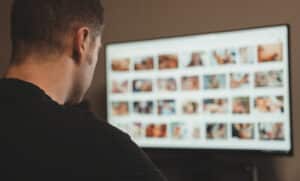
Why is Pornography So Addictive?
It’s common for those struggling with addiction or those close to them to wonder exactly how a given form of addiction can take such a

Is Sex Addiction Hereditary?
There are a number of questions that are common within the realm of sex addiction, and many of these surround the underlying causes that contribute
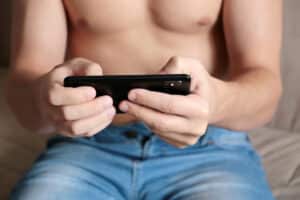
Impact of CSBD on Sex Addiction Recovery
There have been a few major events that have had a big impact on the world of sex addiction and pornography addiction recovery, and one

Signs and Symptoms of Sex Addiction
The ability to recognize signs of addiction is very important, whether for yourself or someone close to you, and the realm of sex addiction is